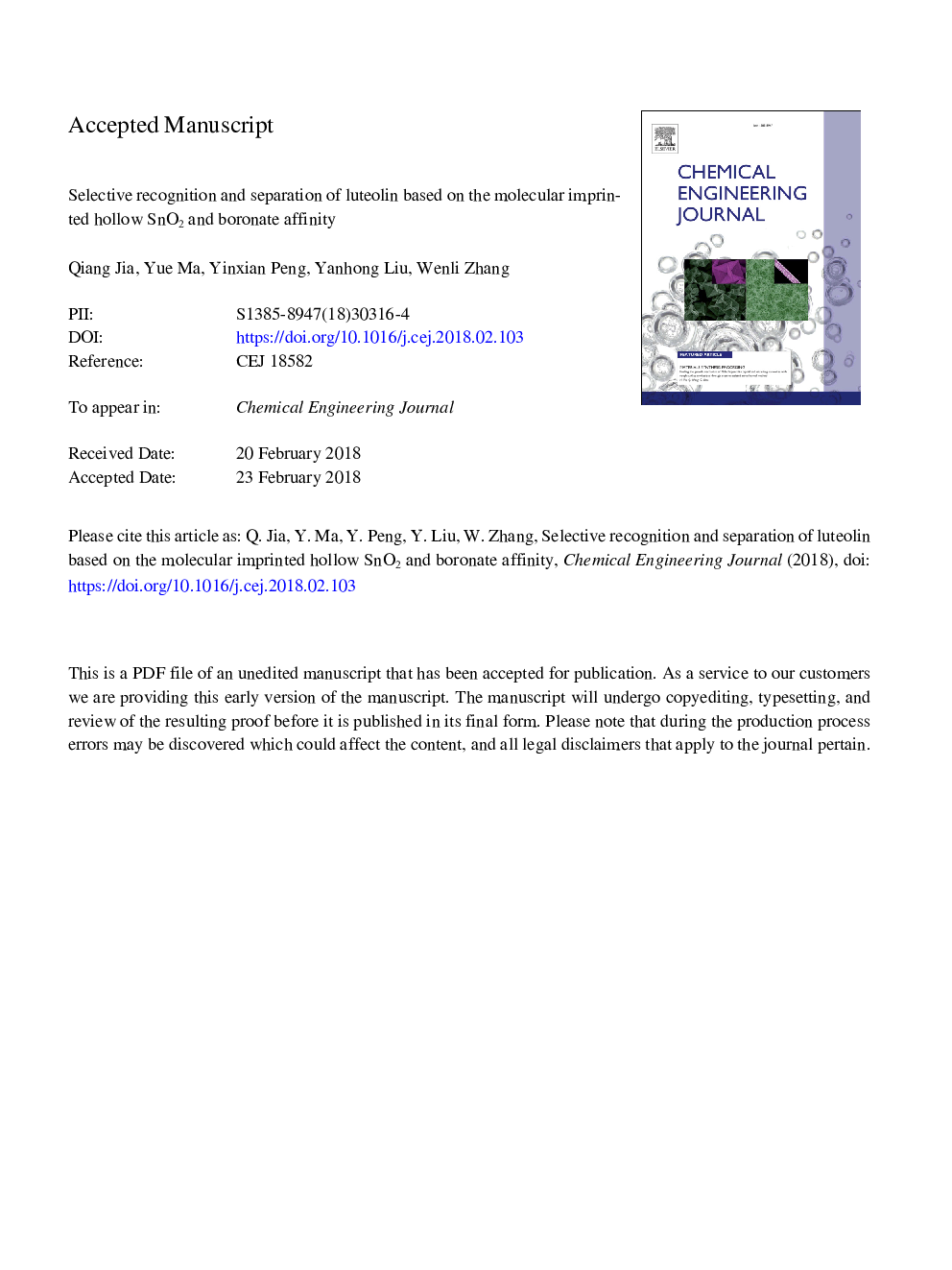| Article ID | Journal | Published Year | Pages | File Type |
|---|---|---|---|---|
| 6579757 | Chemical Engineering Journal | 2018 | 34 Pages |
Abstract
Molecular imprinted hollow SnO2 microspheres (Ho-SnO2@MIPs) integrated with boronate affinity ability were fabricated via atom transfer radical polymerization, and then they were adopted as ideal adsorbents for cis-diol containing luteolin (LTL) recognition and separation. Ho-SnO2@MIPs possessed uniform size (200â¯nm), porous and hollow structure, appropriate BET surface area (118.6â¯m2â¯gâ1), and high-density boronate affinity sites (0.22â¯mgâ¯mâ2), endowing them highly specific uptake and fast separation properties. Due to the merit of pH responsive boronate affinity, the reversible interaction of boronic acid groups and LTL was regulated by the pH value facilely, which was benefit for the controlled recognition and release. In the batch mode experiments, the quick binding equilibrium (within 60â¯min) and a rather high specific binding capacity (46.81â¯mgâ¯gâ1) at 298â¯K were observed, and Ho-SnO2@MIPs also displayed high rebinding selectivity to LTL. By a purification process, a commercially available LTL with 85% purity could be easily extracted and concentrated to 95.28% purity by Ho-SnO2@MIPs, and the purified products possessed the similar antibacterial performance with standard substance.
Related Topics
Physical Sciences and Engineering
Chemical Engineering
Chemical Engineering (General)
Authors
Qiang Jia, Yue Ma, Yinxian Peng, Yanhong Liu, Wenli Zhang,
